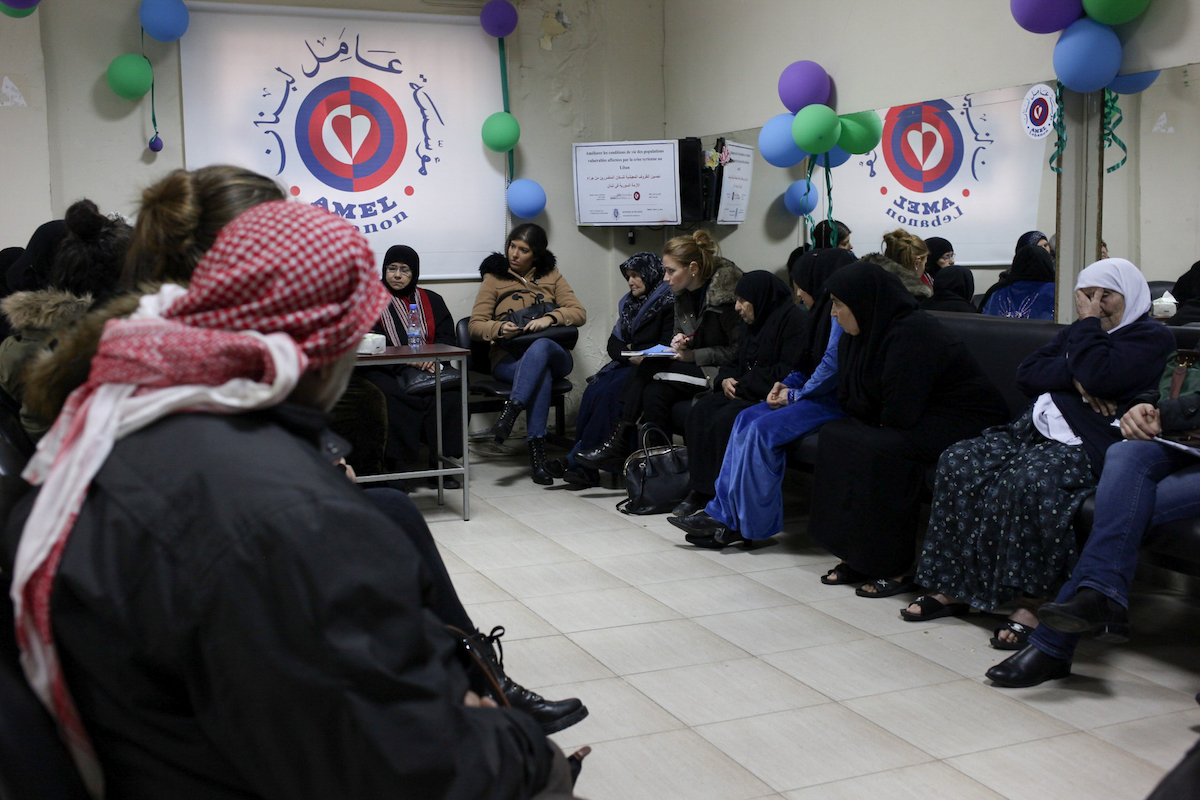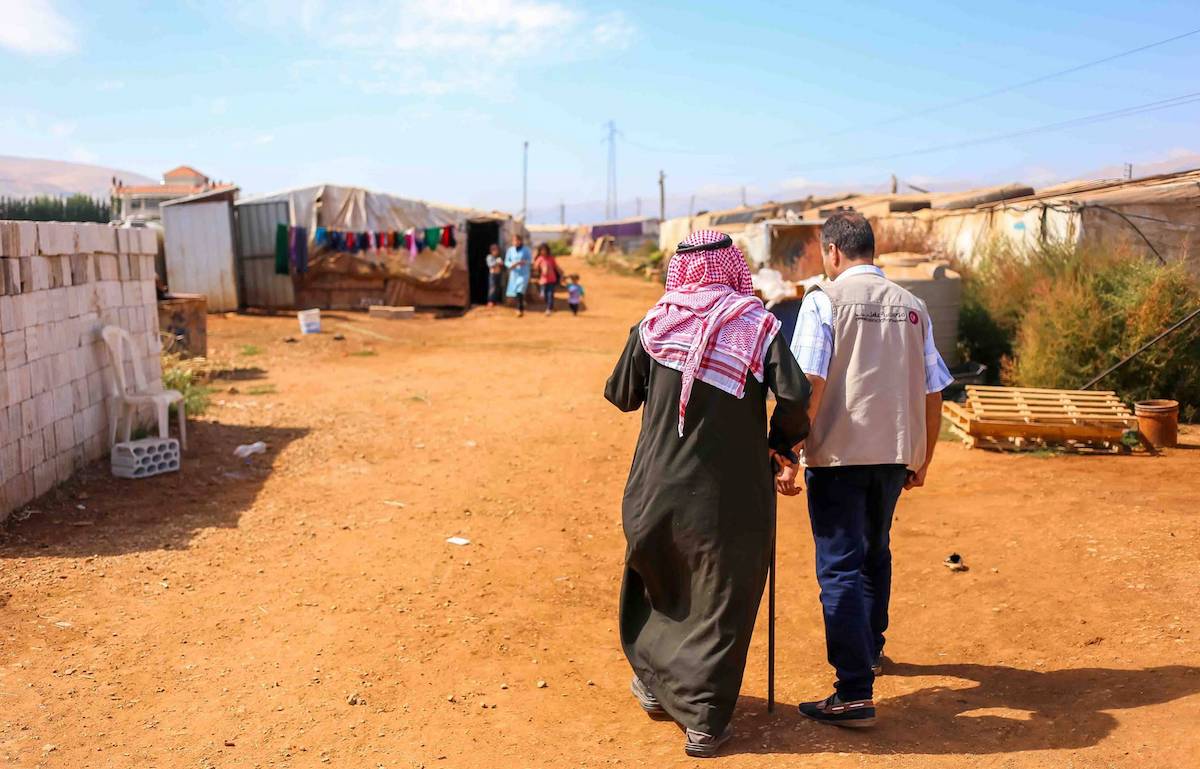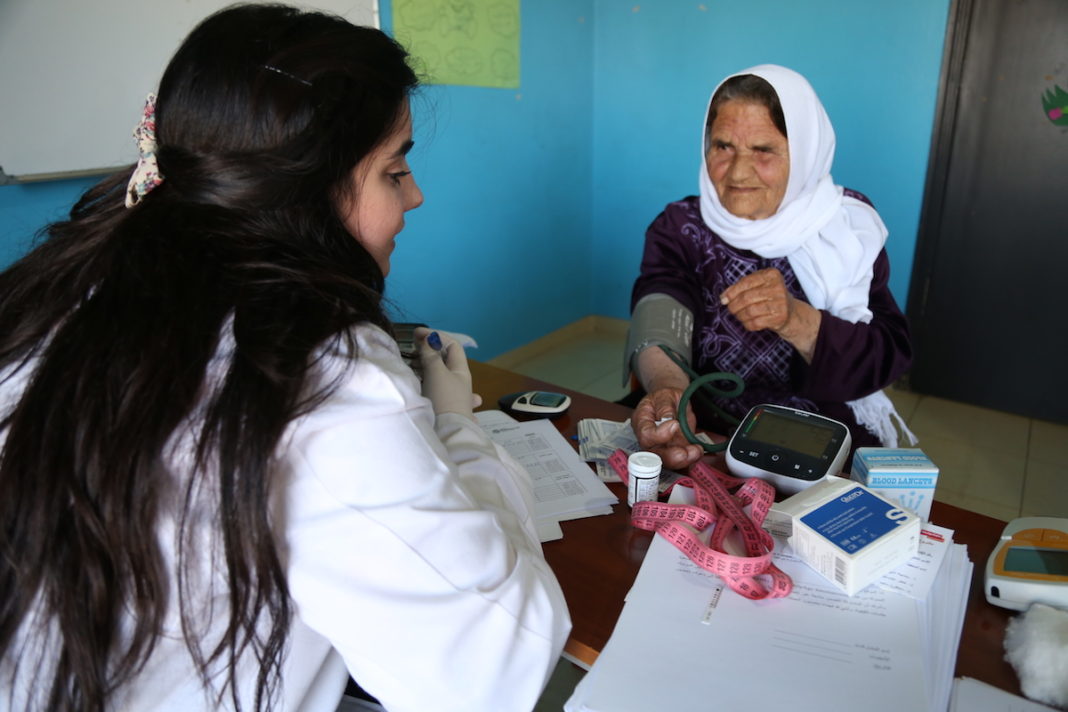In a study by the Algerian researcher Jouidah Ammira in 2015, we learned that the elderly population in Lebanon exceeds 10%! but at the same time, this group has no gains and rights to invest its potentials in the service of society. In most cases, older persons become “dependent” on others. This is not only detrimental to their feelings and dignity but is detrimental to the development process, which can only be achieved by the participation of all social groups, especially since there are many useful roles that the elderly can do.
“Aging symbolizes the terminating period of our life cycle, a period when each person’s look back on a life that passed by a blink of an eye! At this period we start judging ourselves, acknowledging all our accomplishment, and all our mistakes as well”, a definition of aging given by Nayef one of Amel’s elderly beneficiary at Tyre health and development center.

It is difficult to estimate the extent of the tragedies facing the refugees (in particular the aged refugees), from the moment they have to leave their homes and memories, and the loss of their security at all levels! The deficiency of close family bonds, abridged relations with their culture of derivations, lack of food and health security, and many other things that making it so hard for them to encounter new adaptation, oppressed by the feeling of being disassociated from the companionship of their host community. As an outcome, they acknowledge isolation and unhappiness as they get older.
As a response for this situation, Amel Association International took in consideration the importance of this rising crisis, and put in hand an Elderly Program in Khiyam health – development center, in South Lebanon, funded by Caritas Germany, aiming to support the highest number of elderly at the best way possible, by providing them psycho-social support, through a variety of activities, such as cooking, collective gardening classes, psychological consultations, as well as nutrition awareness sessions.
So far 130 older people have joined cooking and gardening training, divided into five groups over two-month cycles. Also, they have special gardening equipment (seeds and tools) and cooking (utensils and recipes) toolkits. These activities are detained 3 times a week and the transportation is provided to the elderly in need.

Home-based elderly care
Moreover, social workers at Amel association are considered a fundamental aspect that plays a vital role in the home-based elderly care. Social workers are often part of teams that conduct psychosocial action by ensuring methodic treatment, aiming to fight depression and anxiety for the elderly community.
For example, a social worker at Kamed El Loz managed to significantly reduce the depressive symptoms, which unfortunately was turning one particular elderly who was suffering from diabetes, into an individual who lost hope in life and hoping to die! Additionally, she also succeeded to improve his health status through regular medical test provided by the Amel centers, while monitoring his regular medication dosage on a regular basis, and ensuring a compatible nutrition with his current health status.
Most important components within the psychosocial support project for the elderly:
· The role of the social workers, who are also responsible for the execution of the activities, at the center level.
· 4 community-based events related to environment and nutrition (including occupational therapy/handicraft, sports activities) gathering the elder individuals involved in the project but also members of the host and refugee communities.
· On a weekly basis, a psychologist offer support and counseling sessions for the elderly upon the referral of the social worker.





 Creative Commons Attribution 4.0 International license
Creative Commons Attribution 4.0 International license